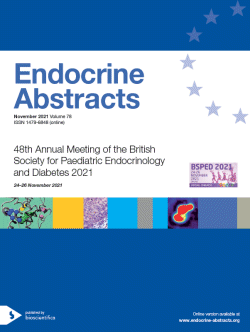Searchable abstracts of presentations at key conferences in endocrinology

48th Meeting of the British Society for Paediatric Endocrinology and Diabetes
Online,
Virtual
24 Nov 2021 - 26 Nov 2021




